As part of the 2017 Wildlife Trade Symposium, held from 25-27 September at University of Oxford, the BIOSEC project team from University of Sheffield led a knowledge exchange workshop on Biodiversity and Security. Here, Rosaleen Duffy, Hannah Dickinson and Laure Joanny review the discussions and outcomes of their session.
Our emphasis was very much on exchange of ideas and experience, anchored by a structured discussion around three areas: militarisation of conservation, the use of the technologies and the challenges of international regulation. Here we set out the themes and questions from the workshop which we will use to help shape our work in BIOSEC. We worked under Chatham House rules, in order to have a ‘freer’ exchange of ideas. This also means that we cannot list the names and affiliations of the participants, and that we refer to general discussion points rather than specific comments. The workshop comprised of 20 participants with a diverse range of expertise, spanning the worlds of NGOs, Governments, media, academia and the private sector.
We had a good critical discussion of militarisation of conservation. There are challenges around the ways that conservationists are increasingly involved in collecting, storing and sharing data on criminal activity. Questions arose around the confidentiality of these data, and whether there was a need for better protocols and guidance on encryption, keeping informants safe, protecting identities and so on. A further set of concerns were expressed around the ways rangers and other conservation professionals were being drawn into dealing with weapons traders, military training and active use of force – for rangers there is perhaps a hidden issue of the additional stresses of the work, leading to PTSD in some cases. There was an interesting discussion around how private military companies may be trying to generate new markets for their expertise by offering persuasive arguments about the security risks posed by IWT. And finally there was a vibrant debate on the gender dimensions of militarisation – especially the imagery and language used around militarisation, as well as the roles of female rangers in operations.

Photo: From L-R, Rosaleen Duffy, Laure Joanny and Hannah Dickinson
In a context of heightened tensions around protected areas and insufficient number of convictions for IWT-related crimes, it seems appealing to use technologies such as UAVs, GPS and forensics to protect rangers and successfully prosecute offenders. New technologies are often seen as a guarantee of efficiency, and projects that include them are more attractive to funders.
However, our discussions indicated that the use of UAVs and other technological devices raises new challenges. Trialling and operating these technologies, and collecting, analysing and storing data, safely requires time and a set of skills that is not widespread among conservation practitioners at the moment. Donors seem less keen to provide support and funding for the human resources needed to sustain use of technologies. More critically, end users are often forgotten and pre-existing technologies are just handed out following a top-down model, which does not lead to successful adoption. During the workshop the point was made repeatedly that technology is only one tool amongst many others and will only be as good as the people who use. Participants were also acutely aware that technology can be used to engage in IWT; offenders can and do invest in new equipment and gathering information from conservation programmes’ digital files.
Our final discussion was around the role of intergovernmental organisations in tackling IWT: debating what their role should be; whether these organisations and frameworks are effective; and finally, interrogating the notion of “serious crime” – what it means, and how we operationalise this concept to tackle IWT.
Discussions made clear that there is space in the conservation arena for international organisations and frameworks. Participants suggested that transnational platforms could provide the impetus to break down entrenched silos and to foster collaboration within and between governments. The general feeling was that international involvement should be based upon the principle of subsidiarity, whereby the international community should step in to deal with issues if this is the only way to address them.
CITES was identified as the most effective international framework, whilst acknowledging that there are substantial barriers to implementation in many national contexts. Participants agreed that it is ineffective to consider local, national and international levels as discrete and autonomous: commitments made at the international level have to effectively trickle down to local levels. Furthermore, when formulating international regulations, there is a need to consult and take into account particular regional, national, and local contexts prior to implementation. In other words, when thinking internationally we need to think locally at the same time.
This transnational-local interface was echoed in discussions about “serious crime”, with participants suggesting that it is important to ensure the international message on “serious crime” is reaching the local-level where it should be followed through via coordinated on-the-ground delivery of commitments and enforcement strategies. The notion of “serious crime” is a ‘transnational concept’ deployed by the international community in order to promote co-ordination and standardisation of penalties in order to better tackle wildlife crime, however discussions showed that there exists a substantial gap in how this notion is understood and implemented nationally.

Photo: scribbled flipchart notes, by Rosaleen
In the final section of the workshop we asked our participants to break into groups and report back on what we might be missing. This will help us to be responsive to concerns and challenges raised by key players in tackling IWT.
- Security versus notions of personal safety
- What about the domestic trade in wildlife
- Following the development of the serious crime narrative
- The issue of corruption
- Where does IWT figure in national priorities
- Knowledge exchange might mean working together and working better
- What are the ecosystem effects of tackling IWT
- The context of international development
- How do we reach the local level?
Thank you to everyone who attended, we found it enormously helpful.
If you would like to view a copy of the slides for the session, you can do so here. Contact details for Rosaleen, Laure and Hannah can be found on the team page.
This report has been re-posted via biosecproject.org



